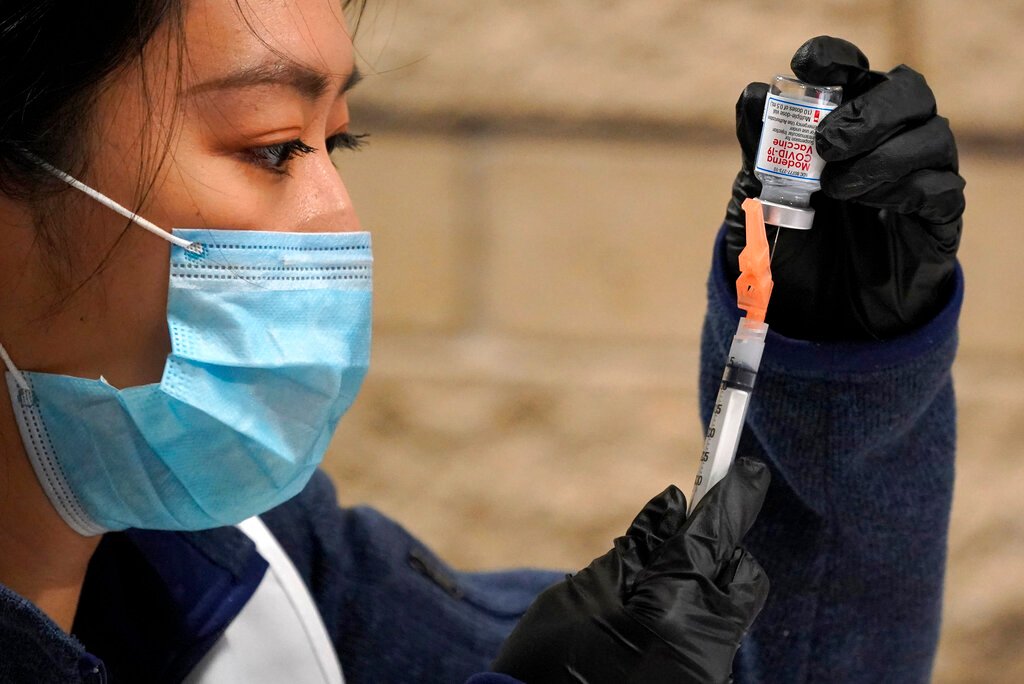
ROCHESTER, N.Y. (WROC) — Two allergic reactions to the first doses of Moderna vaccine are being treated at Rochester Regional Health.
The cases were mild and health allergists were able to successfully treat the patients and move forward with the second dose.
The cases could help national experts learn how to handle allergic reactions the Moderna COVID-19 vaccine.
Doctors say this could be the first case of using a grated method to administer the Moderna COVID-19 vaccine after an allergic reaction.
This means the second dose with given in smaller amounts to monitor for any negative outcomes and what doctors at RRH learned could help allergy experts across the nation successfully treat reactions to covid-19 vaccines.
Meaghan DeChateauvieux says she is feeling better, after having an allergic reaction to the Moderna vaccine.
An employee at a domestic violence shelter, she was eligible for COVID-19 vaccination and got the first dose last month.
“I was sitting in the waiting room after I got the vaccine and I started to feel a little itchy,” DeChateauvieux said. She developed hives and swelling within 10 minutes of getting the shot and was immediately taken to the emergency room.
“I was able to do the allergy testing. They did the shots on my arm and found there was an allergy to the Moderna vaccine, it definitively puffed up and turned red,” DeChateauvieux said.
According to the CDC, allergic reactions to the Moderna vaccine are rare.
Mild reactions like the one DeChateauvieux had are 3 per million doses administrated and doctors say when determining if you should get the vaccine, an allergic reaction is unlikely.
“To put that in perspective,” Dr. Shahzad Mustafa, Lead Physician, Allergy, Immunology, & Rheumatology, at RRH said, “if there 1.2 million people in the Finger Lakes region, were talking about a handful of people who may experience an allergic reaction, so it’s very uncommon.”
Working in an essential service, DeChateauvieux wanted to move forward with the second dose.
The time the dose was given under the care of an allergist in small amounts, over a 2-hour period as opposed to one shot.
This technique is commonly for allergic reactions to other vaccines like the flu, but this is one of the first reported instances of using the method for the COVID-19 vaccine.
“It’s possible to get the second dose if you have a reaction to the first dose or if you have allergies,” DeChateauvieux said. “Don’t be afraid to go through with the second dose cause it’s far more important, I believe to get that herd immunity and it but protected from COVID and protect others from COVID than the potential reaction you might have that the doctors can support you through.”
The success of the second dose gave DeChateauvieux confidence that patients can overcome mild reactions to the Moderna vaccine.
The Centers for Disease Control and Prevention does recommend anyone who has a severe allergic reaction to the COVID-19 vaccines should either not get the second dose or contact an allergist.
VIA ROCHESTER FIRST


